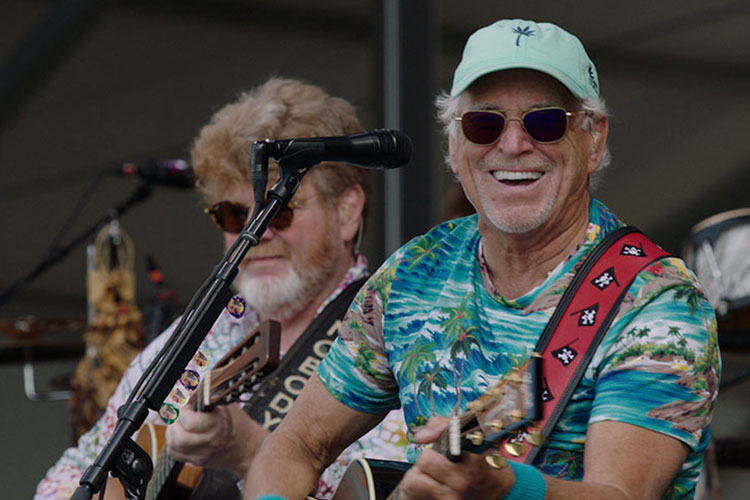The following questions and answers are excerpted from a conversation that followed the NBR screening of Jazz Fest: A New Orleans Story.
How did this film get underway, and how did you decide to co-direct it?
Frank Marshall: One of the things that happens — as you get older — is that your friends also become experienced, and rise in their careers. And one of my best friends is Jimmy Buffett. It’s great when your heroes become your friends. I like to go on the road and hang out with Jimmy. Back in 2018, we were in Denver and he was playing with the Eagles. And there was a party afterwards. And at the party, there was this gentleman named Quint Davis. I started talking to Quint, and he was a very lively and knowledgeable music fan. And it turns out he’s the co-founder of Jazz Fest! And he said, “can I pick your brain for a second?” And he told me about the impending celebration of the 50th anniversary of Jazz Fest. Fifty years! And I thought that was pretty amazing— I’d never been myself, but of course I’d heard about it. And he said that they really wanted to do something special. He either wanted to shoot a documentary, or do a series, or just cover it somehow. And I said, “I’m in! Let me do it.” And so that’s kind of how it all started.
you’re going to find things that the computer isn’t going to put in your feed
There are so many incredible moments, it’s hard to pick just one to talk about. But the scene with the Marsalis family is really special. How did you arrange that?
FM: The real key, for us, was to have Quint Davis guiding us on who we should talk to. Because there was no way we could talk to — much less actually shoot — everybody. And, you know, it took two of us to direct it, [co-director] Ryan Suffern and myself, and we would split the duties: One of us would be interviewing in one place while the other was out covering a show, or a tent. And to get the Marsalis family together and to be able to talk to each of them was truly special, and something I’ll always remember. And to be able to honor them in that way, and to show the family playing together… I just love the son’s recollections of playing with Dad, and, you know, some musicians even scaring them. So it was very honest, I thought.
The film is structured so carefully. Can you discuss the editing process?
FM: The city of New Orleans really was the glue, and was a character in the movie. And so, I would use that to have a transition between the different styles of music, the different genres of music, the different foods, the different arts and crafts that are there… so, really, New Orleans is weaved through the entire movie. And I have to mention our editor, Martin Singer. He did a brilliant job. Because it has to have— editing has to have a certain rhythm. So you’re with the music, and then every once in a while you get a sound bite from somebody, but you don’t destroy the feeling of the music you’re listening to. So it doesn’t take away from it, it adds to it. Martin was incredibly important to us for that reason. There were so many times when I wished we could just let the scene play! But we had to find that balance: where do you bring in jazz? Where do you bring in gospel? What leads one thing to another? The other thing I was going to say about Jimmy Buffett: In the end-credits there’s a special reason that he’s singing The Stones “You Can’t Always Get What you Want.” And that’s because The Stones were scheduled to close Jazz Fest that year, and Mick Jagger had a throat problem, and they had to cancel. So Jimmy came in to do the closing in honor of The Rolling Stones. So there’s a little inside info for you there!
What are some of the things you remember most, from the production?
FM: Obviously, when you’re there and you’re looking out from backstage and there are 50,000 people being totally connected to the music that’s going on… you realize it really is a universal language. And just being there, amongst that, and being able to enjoy that… is special. But for me, I also really enjoyed doing some of the interviews. And when you’re talking to the artists about what’s special about Jazz Fest for them, and to hear the history, and to hear about why they’re at Jazz Fest… I thought that Boyfriend had my favorite quote. She said, “you know, you’re going to walk around Jazz Fest and you’re going to find things that the computer isn’t going to put in your feed.” And that’s a line that somebody wouldn’t have said ten years ago.

